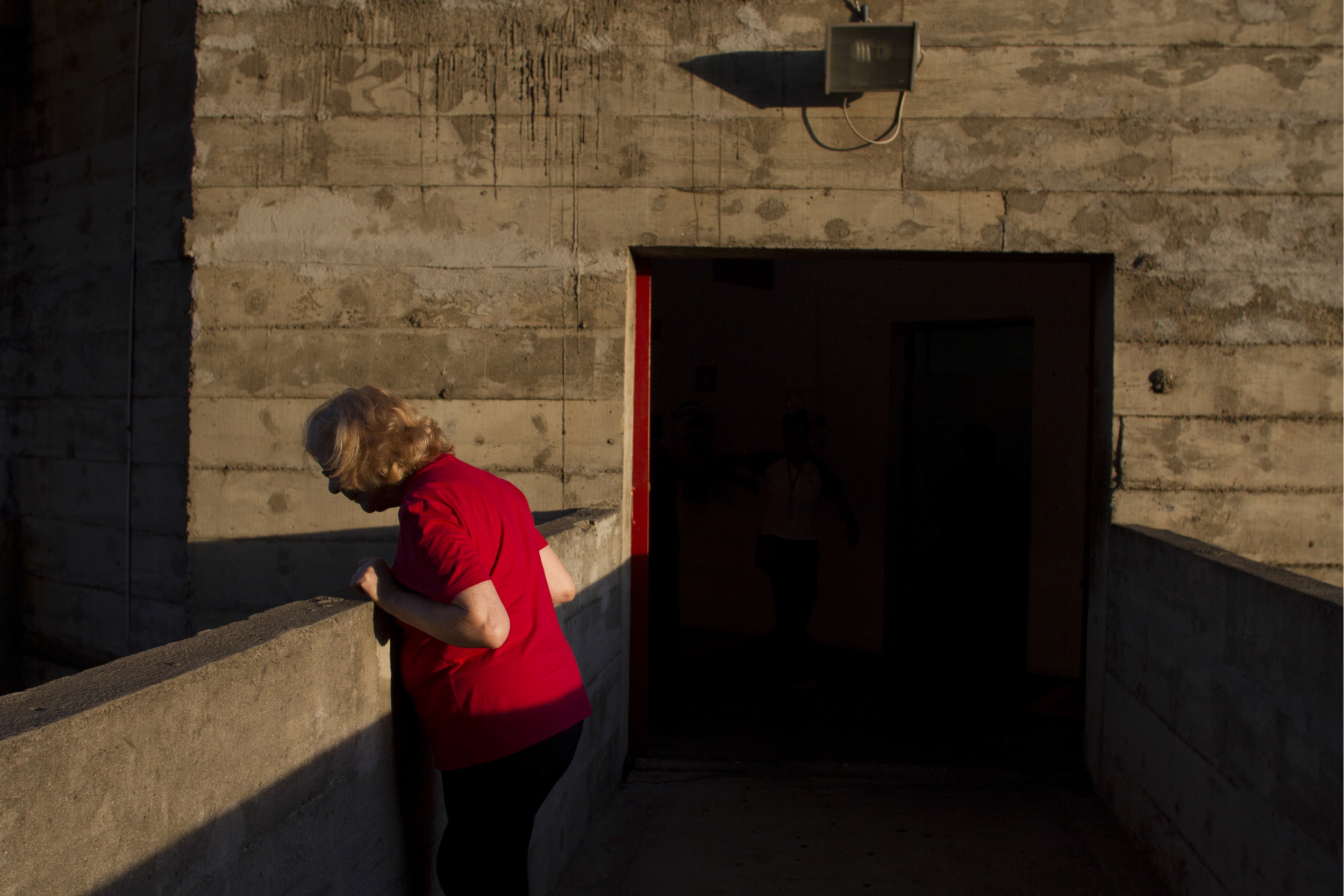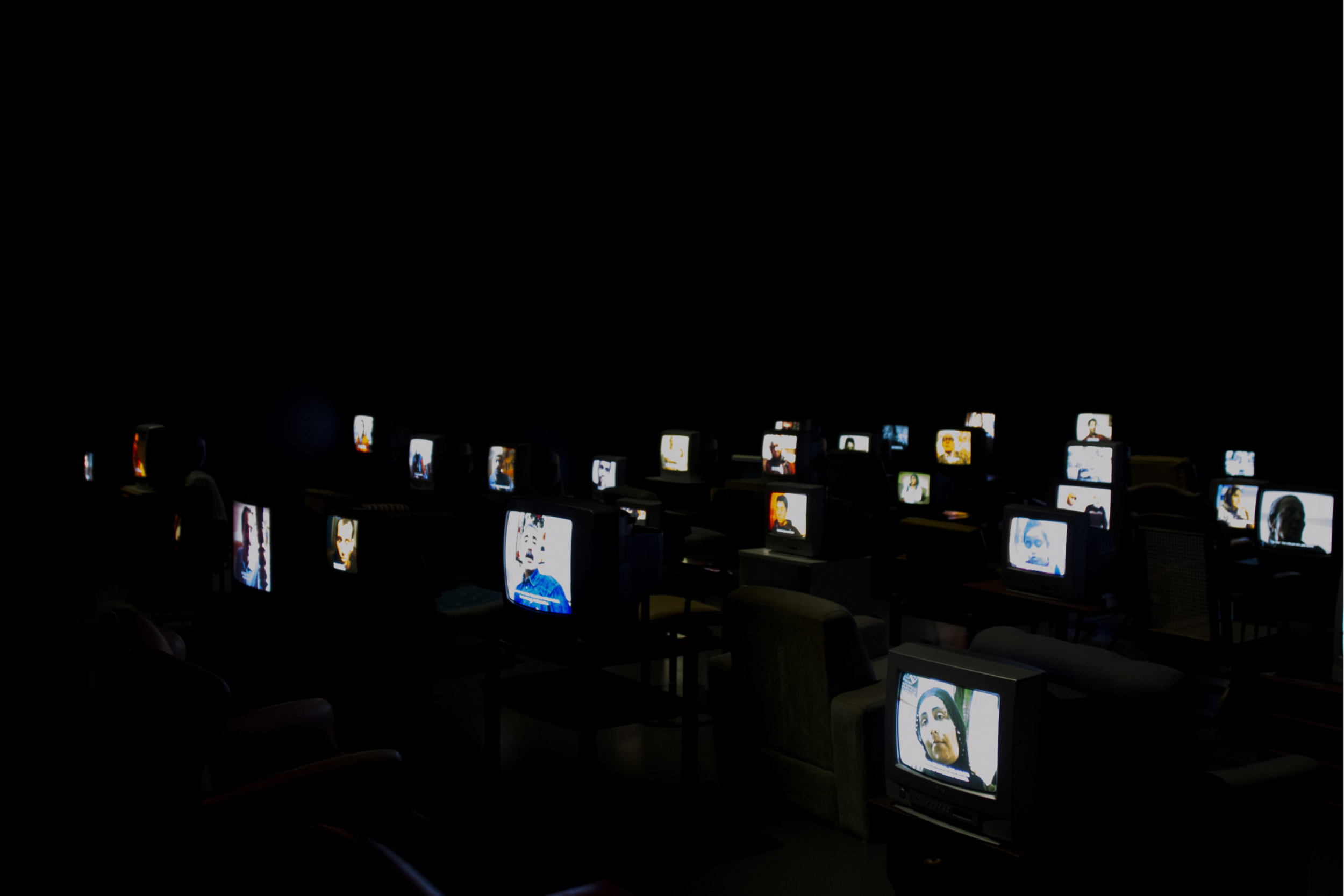THE COW IN THE BATHROOM
IT'S A WHILE SINCE I realised there’s a test—a virtual checklist—for being a Sarajevan. I’m not a Sarajevan yet and may never check all the items on the list. Still, I know a few.
Do you keep live chickens out of the apartment?
It’s still wartime in Sarajevo and I’ve come, aged twenty-four, to volunteer with an NGO. The day before I left London, somebody at the NGO headquarters dropped me a note saying, “Please visit—” Below was the name “Ljiljana” and a scribbled address.
The address is hard to find—only the black hulks of apartment blocks to navigate by and the dim smudges of candles behind heavy plastic sheeting. No sound except slow, quiet footsteps. People carrying buckets.
After entering a shell-pocked hulk and groping up six flights of steps in thick darkness, I blink when Ljiljana opens the door. Her candle dances back at us from polished picture-frames and mirrors and Ljiljana’s absent daughter playing a sparkling piano in Vienna. The apartment gleams.
I remove my shoes, tread into soft slippers that Ljiljana passes me, step forward—then feel my nostrils widen. A heavy, musty smell hangs in the air.
Ljiljana smiles wryly.
“No matter how many buckets you fetch from the pump, your toilet always smells,” she says (in flawless English), leading me in. “You don’t use good water for the toilet. Only after you have cleaned your teeth with it, washed with it, scrubbed the floor with it, can you use it to flush.”
She conducts me to the bathroom and points out her reservoir: a plastic dustbin. As I peer respectfully into its black depths, I hear a boom and swish overhead. Somebody in the apartment above Ljiljana’s has emptied a bucket into a toilet bowl.
Behind me, Ljiljana’s shadow stiffens.
“I must speak to someone about that woman upstairs,” she whispers. “A peasant from the countryside. She ran away when they came to burn her house, but she brought her chickens. Can you imagine? Dirty chickens living on the balcony above mine!”
I stare at the shadows masking her face. Apart from my history teacher, I’ve never heard anybody use the word “peasant” in my life.
“The municipality gave her the apartment because it was empty,” Ljiljana adds. “And every morning she sweeps the—the izmet—over the side.”
“Izmet?”
Ljiljana has groomed herself for war. The candle reveals sleek yellow hair plaited down her back. A perfect blouse. Powder on her elegant nose. I’ve dressed down for this visit, and I feel like a pile of izmet.
“You know,” she says, and her nose pecks back and forth. Her fingers skim invisible dust from the door handle. “Filth.”
Do you only appear in public properly dressed and with your makeup on?
Two decades later I’m in class with my students at the Philosophy Faculty of Sarajevo University—just a couple of streets from where Ljiljana had her apartment. The faculty is the kind of building that you wished your high school wasn’t: echoing hallways, lots of stairs, lots of glass. When I first arrived, the whole street was paved in glittering powdered glass.
Out of our classroom window are tantalising glimpses of Austro-Hungarian architecture—cornices and mouldings, weeping fragments of stucco. Beyond are green mountains, blue sky.
Nearly half of the students facing this view underwent a kind of reverse displacement. Having grown up as refugees in Switzerland, Germany, America, the UK, they encountered the checklist in a language they hardly spoke. But they have their parents’ memories.
“My mother told me this,” one student begins. She’s five years younger than I was when I arrived. And five years older than my daughter—who, like these ex-refugees, is half a foreigner in her own country.
“After I was born, she used most of our water to keep me clean,” the student says. “There wasn’t enough left over for washing her hair, so she cut it all off. But she managed to wear makeup always. She told me it was incredible—what you could do to your face with food colour and—”
“Flour,” says a second student. Bright brown hair, dark eyelashes. When I’m at the faculty, I see flashes of my daughter wherever I look. “My mother told me that when we got our humanitarian aid package, she used a bit of the flour to make powder for her face. And when she walked through the shells to get water for us, she always wore her best clothes.”
A couple of decades ago and streets away, I’m still standing bewildered in Ljiljana’s bathroom. She clutches my arm. The candle flickers wildly. Her voice becomes a hiss.
“Can you believe this? That peasant-woman once ran outside in the street. I saw her. She was wearing a dressing gown.”
Can you laugh at your own memories of the war?
Around the time of the Dayton Accords, my now husband decided to lighten me up. I was seeing tragedy everywhere: I was depressing him. He was a gaunt figure in khaki with burning eyes who had once been a student and a bluegrass musician. Only after midnight could he sometimes manage a visit. When he knocked on the door, I would hand him a blanket and wrap myself in another. Then we would sit with our backs to the cold heater, waiting for the gas to arrive. Usually at about two a.m.
His voice sounds thin and husky in the dark.
“When the war started they made me be a policeman. I had no training. Nothing. An old man came and said thieves had stolen his cow. My partner and I, we talked to all the neighbours, and we followed the cow. We came to an apartment block. We said, ‘This is not possible. A cow does not climb stairs.’ But we climbed the stairs.”
“Why?”
“Because the cow had shit on the stairs. We came to the door of an apartment, and we knocked. At first the people wouldn’t open. Then they didn’t want to let us inside. But we could smell something. We pushed inside. We went to the bathroom. And we saw the cow.”
I don’t ask if the cow was alive—I have guessed she wasn’t. She had been butchered on the tiled floor.
“Then there was a thief we caught picking someone’s pocket,” he goes on. “We dragged him to the police station. We didn’t have handcuffs, so we tied him to the radiator. To wait till the commander came back. But he jumped out of the window, taking the radiator with him. He pulled it out of the wall. We caught him, of course. The radiator was still tied to him. We asked him, ‘Why did you do this?’ He told us, ‘Your guys beat the shit out of me last time. I’m not staying.’”
The sound I make means “I am falling in love with you and want to make you happy.” But it’s not a laugh. When he tells the same stories to his future daughter, she will make a sound that means “You’re my father and I want to make you happy.” But she won’t laugh. (Those who went through the siege with him, however—they’ll split their sides.)
He suddenly sobers.
“There was an old man who came to our station because his neighbours were going to chop down his orchard. My partner and I went there. We found lots of women with axes. We had nothing. We tried to talk to the women, but they didn’t listen. They chopped down the orchard. The old man was crying. They were screaming at him. Because his son had gone to fight on the other side and was firing at them from the hills.”
Why does this story hurt so badly? It’s so short.
“I was on the front line, in the trenches, for three years,” he adds. “But I only once saw a soldier from the other side. He got drunk and walked into our campfire.”
Do you always know when the gas is flowing?
I still haven’t laughed. So he asks,
“Have you heard about the doctor and the gas?”
“What doctor?”
“They brought him a burn victim. A woman whose face was black with soot. He took one look at her and said, ‘I’ll be back in a moment. I’m just off to tell my wife that she can cook dinner. Because the gas has come back on.’”
His laugh rings out in the silence, becomes a coughing fit. There is a soft hiss behind us. We strike a match, and a blue light flickers behind bars. Two a.m.
Do you always know when the water is going to stop?
Today I drink frappes with a friend whose suburban house miraculously survived a landslide during the recent floods.
“Oh, yes, we were fine,” she says. She grins at me sideways, sucking on her carrot-and-yogurt shake. She is wearing a crisp, peach-and-white-striped blouse. “We only lost our water for five days.”
The “we” means herself and three small children. My own daughter is absent, though she sent me a photo of herself playing the piano. Aged fourteen, she is back in the UK, where I started from, aged twenty-four.
“My neighbour lost everything,” adds my friend. “Her house. Her barn. Her cow. Even her hill. But somebody gave her another cow. She asked me if she could put the cow in my bathroom at night. So nobody could steal it.”
(Do you keep live cows out of the bathroom?)
“Did you say yes?”
She sweeps the bottom of her glass neat and clean with the straw.
“What do you think?”
And I think that the checklist is more than a test for Sarajevan authenticity. It’s a toolkit for survivors as well.




